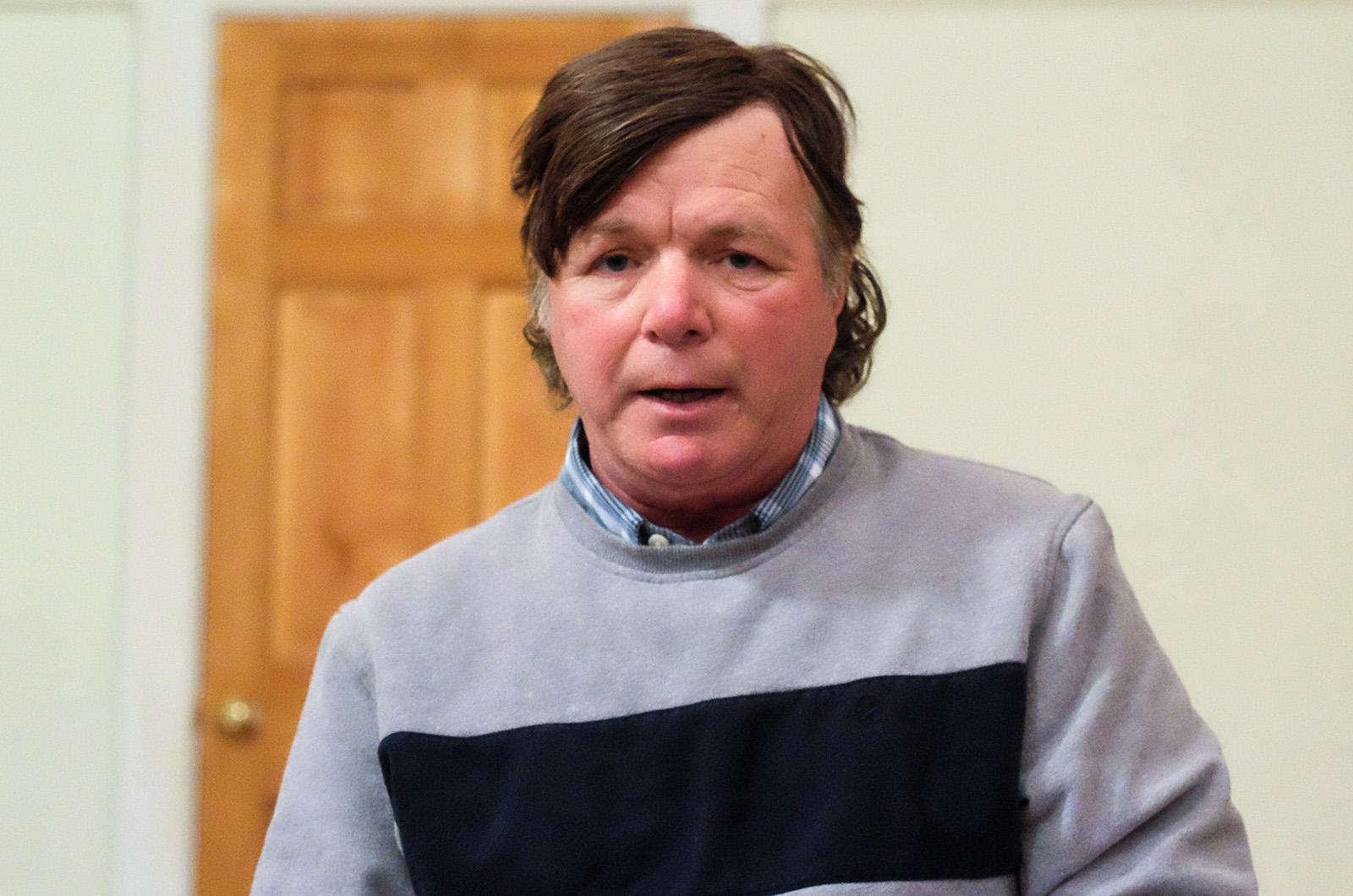Aquinnah select board member Gary Haley, who was cited and fined by the state ethics commission for violating the state conflict of interest law, has appealed the ruling in Suffolk County Superior Court.
In a decision released Oct. 25, the commission ordered Mr. Haley to pay $10,000 in civil penalties in connection with his work on an Aquinnah Circle beautification project in 2018. The commission found that Mr. Haley — a master electrician by trade — violated the law on two occasions: once when he appointed himself to perform electrical work on the project and again when he signed his own invoice in his role as a select board member. He was charged $5,000 for each of the violations.
But in a five-page lawsuit filed on Nov. 22, Mr. Haley alleges the ethics commission wrongly found he violated the law. Cleared by the commission on two further counts of breaking the conflict of interest law, the complaint argues all charges against Mr. Haley should have been dismissed.
In a statement following its decision last month, the ethics commission detailed findings that Mr. Haley volunteered himself to perform work installing conduit for the Aquinnah Circle beautification project and went on to perform additional tasks to expedite that work without first consulting the town.
“Without consulting the town, Haley decided that he would do this additional work and seek payment from the town for it,” according to the statement issued by the ethics. “Haley later billed the town $17,445 for the work, and, as a select board member, approved an expense warrant that included his invoice.”
Mr. Haley’s complaint argues that the commission offered no evidence that he actually knew his invoice was included in the warrant he signed. He further alleges that the commission should have dismissed the count alleging that he appointed himself to perform the electrical work — noting that the commission found elsewhere in its decision that there was no contract between himself and the town.
According to his complaint, Mr. Haley volunteered to do the electrical work to help in an emergency and expected it would take only a few hours of his time.
“The entire job was vastly more difficult than what he had volunteered to do and Haley submitted an invoice to the Town to cover his time and that of his two workers,” the complaint reads in part.
“However, as the Commission found that there was no contract as was alleged in Count Two, it wrongfully failed to dismiss Count One as well, which likewise alleged the existence of a contract,” it continued.
The appeal falls under the jurisdiction of the Suffolk County Superior Court, since Boston is the commission’s usual place of business. A spokesman for the state ethics commission was not immediately available for comment.
Mr. Haley has long claimed innocence regarding the charges brought by the ethics commission in 2021. Speaking with the Gazette by phone Monday, attorney Richard Gross, who has represented Mr. Haley throughout the state ethics commission process, reiterated that Mr. Haley believes he was wrongfully found to have violated the law.
“We think the commission was right on the two counts it found in Mr. Haley’s favor, and wrong on the other two — and we want it to correct those,” he said.






Comments (6)
Comments
Comment policy »